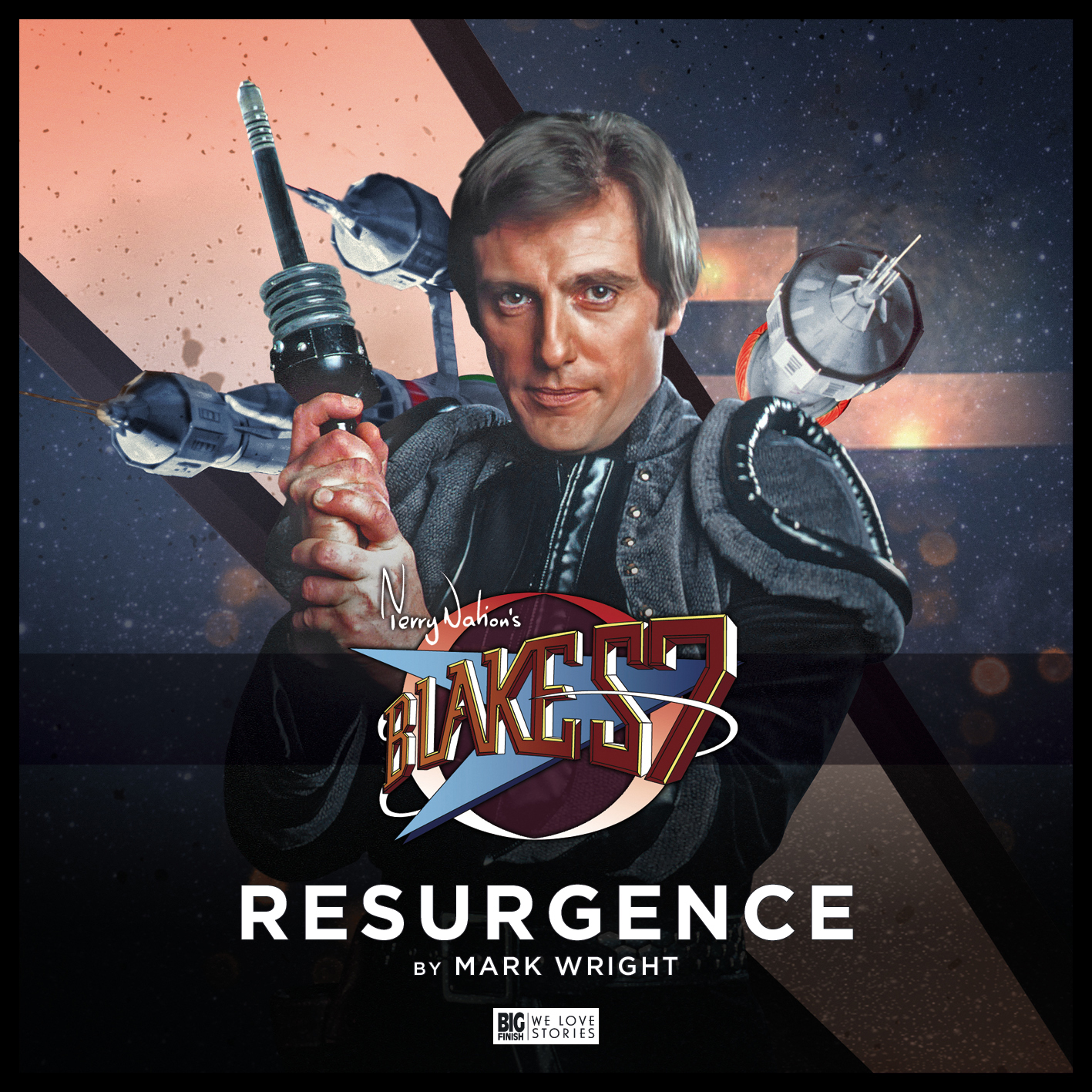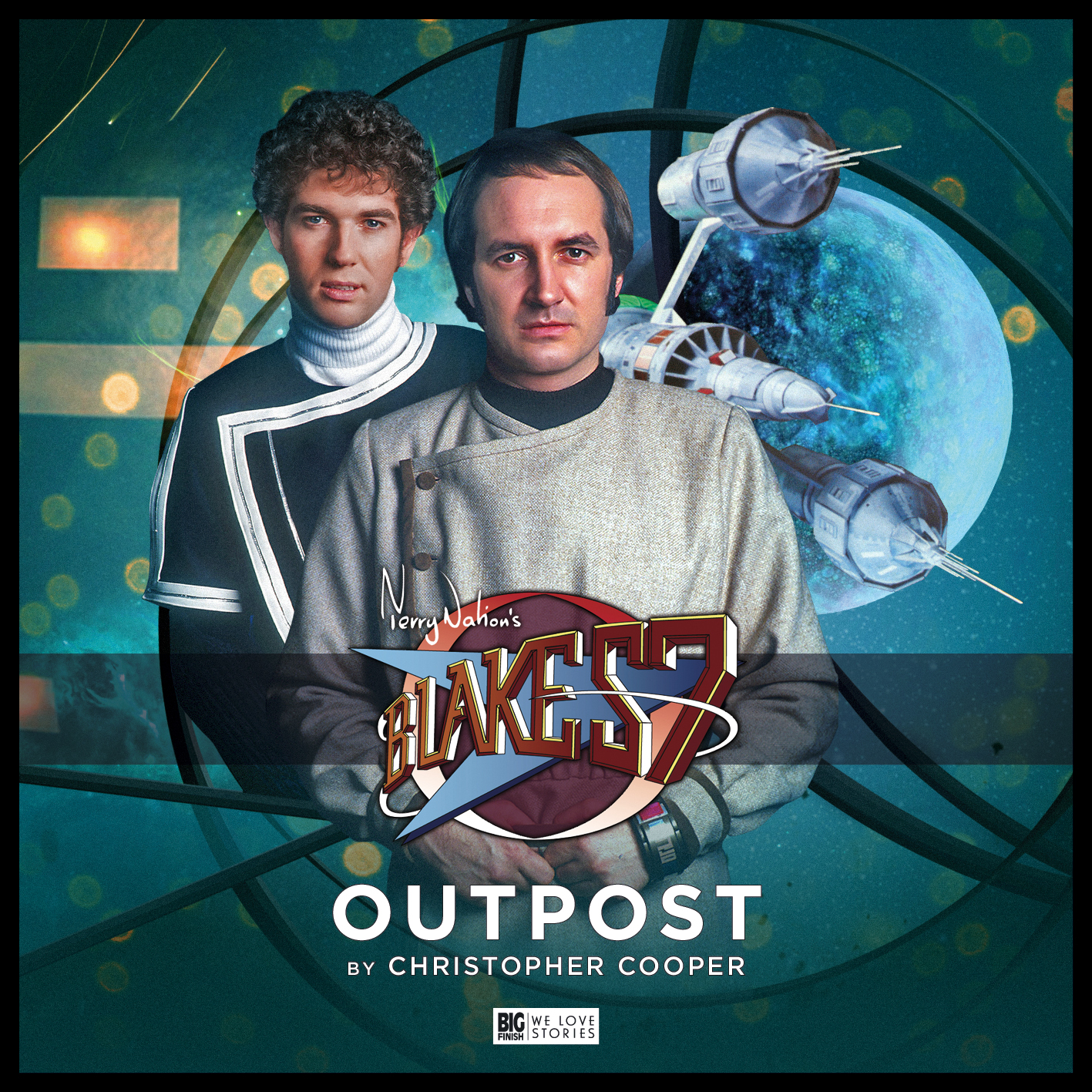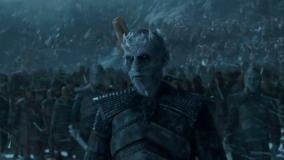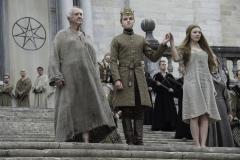Blake's 7 - The Classic Audio Adventures: Vol 4.1: Crossfire - Part 1
Mark Wright and David Bryher
Directed by John Ainsworth and Nigel Fairs
Big Finish Productions, 2017
Stars: Paul Darrow (Kerr Avon),
Michael Keating (Vila), Jan Chappell (Cally),
Steven Pacey (Tarrant), Jacqueline Pearce (Servalan),
Yasmin Bannerman (Dayna), Alistair Lock (Zen/Orac),
Clare Vousden (Winterhaven), John Green (Mordekain),
Hugh Fraser (The President), Rebecca Grant (Gwen Parker), Walles Hamonde (Gunner Kalvert), Roger Parrott (Mavlek),
Becky Wright (Goddess/Distributor/Curator), Abi Harris (Alta-Six), David Warner (Tavac), Donovan Christian-Carey (Herrick), Rebecca Crankshaw (Zeera), Daniel Collard (Jallen)
“We have to tell the others! We need to be ready!”
“Ready for what?”
“Servalan will do anything to cling onto her throne. We need to be ready for war!”
Cally and Dayna, B7 - Crossfire: Fearless
Following the successful relaunch of Blake’s 7 on audio, with the excellent Spoils of War boxset, Big Finish wasted little time in late 2017 following it up with the first volume of Crossfire, part of a “season” of 12 new adventures across three boxsets. Unlike Spoils of War, which was an anthology of four tales loosely set throughout the third season of the original TV series, Crossfire is intended to fill the “gap” between that season’s penultimate episode Death-Watch and the climax Terminal. And if you think that that “gap” isn’t ripe for exploitation, well, as Avon (Paul Darrow) himself might say, “Oh, you’ll have to do better than that …”
Crossfire reveals that there is in fact quite a lot of fertile ground that can be covered, drawing not only on the rich content of the original TV series, but also from Big Finish’s own B7 output. The opening episode Paradise Lost sets the theme – and a very high bar – for this lot of tales and subsequent boxsets as an old adversary of the Liberator crew (played again with charisma and panache by Hugh Fraser) triumphantly returns. Newcomers to the B7 range of full cast audio adventures are recommended to listen to earlier instalments (notably the serials Mirror, Cold Fury, Caged and Devil’s Advocate, all available on download from the BF website for as little as £2.99) before they begin listening to this set, as they really establish the political state of play in the Terran Federation.
Paradise Lost is the strongest of this quartet of plays, even though it ceases to be a story in its own right half-way through and becomes the first chapter in an epic, broader political saga. Nevertheless, writer Steve Lyons sets up an air of mystery in the opening minutes and throughout the first half of the play. Vila (Michael Keating) and Cally (Jan Chappell), aided by a zealous Federation dissident Alana Winterhaven (Clare Vousden), materialise on the former tourism and entertainment spot of Erewhon (pronounced “air one”) in a bid to ambush President Servalan (Jacqueline Pearce) who appears (to all intents and purposes) to be on the planet.
However, as the crew’s investigation reveals, the true villain of the piece turns out to be someone quite different yet familiar and equally as dangerous. Avon is subsequently forced to be quite ruthless (in a manner reminiscent of TV episodes Rumours of Death and the finale Blake) to protect his crew and his ship as they are unwillingly dragged into an unstoppable tide of events.

Tarrant and Mordekain’s conversation about military honour and duty would be dull in the broader SF genre but, thanks to the high quality of the writing and the strength of Pacey’s and Green’s performances, it is entertaining and fascinating. It’s also undercut by moments of light humour; when Mordekain reveals that he has remotely deactivated a landmine that Tarrant has stepped on during their exchange, Tarrant mutters disappointedly: “Oh! Oh, well, you could have mentioned it sooner! I’ve got cramp in my foot now!”
It’s a little disappointing then, that with such a dramatic, momentous first episode, the rest of the plays in the boxset are largely removed from this story arc. That’s especially when the second entry in the boxset – True Believers – is arguably amongst the worst pieces of drivel to be produced under the B7 banner!
True Believers is notable for using a single member of the regular cast – Cally – in the narrative. Otherwise, it’s a totally forgettable experience. It’s another example of BF attempting to replicate B7’s habit (especially in the third series) of experimenting with more mystical, fantasy-driven episodes from SF and fantasy writers (eg Tanith Lee). Of course, the lesson that BF hasn’t learned from history is that such stories in B7 were ordinary instalments and are largely unpopular with the fanbase 40 years on. Worse, some episodes often tied in with Cally’s telepathy and mental abilities, creating a cliched, cringeworthy trope.
Simon Clark is a renowned SF and horror scribe who has received much acclaim for Night of the Triffids (the authorised sequel to John Wyndham’s original Day of the Triffids, which Clark and BF have also adapted for audio). However, drafting a talent like Clark to write a B7 script is no guarantee of quality. The script is universally awful and, worse, unashamedly pulls the “Cally card”, as our heroine, her mind under assault from a powerful entity, teleports alone to a desolate, former Federation colony, whose human inhabitants are besieged by a horde of the planet’s indigenous natives under the influence of a malign being. (Never mind that in the logic of the story, and the broader context of the TV series, no one aboard the Liberator would just let Cally go off on her own, especially if she was under mental duress.)
Cally befriends a self-appointed high priestess (Rebecca Grant) who claims she can commune with the local goddess, and a young militia man (Walles Hamonde) who is besotted with the priestess. They embark on a quest to the Singing Grave, an ancient monolith of the 2001: A Space Odyssey variety, which also appears to be the source of Cally’s distress (and the malign influence). It doesn’t help that the performances from the guest cast are variable (although Roger Parrot is good as agitator Mavlek), and that even Jan Chappell overacts throughout the play.
There is a line from Cally in the play – “My brain is scorched!” – that sums up perfectly just how painful True Believers is for the listener by its close! Paul Darrow would be especially grateful that his services were not required for this script.
Fortunately, the third and fourth instalments rescue this boxset from being a disaster. Resurgence is a terrific episode, and a great ensemble piece, while Fearless is a Vila-centric episode with a twist.

Resurgence is, in many respects, a retread of events in Redemption. However, the fact it features the later Liberator crew headed by Avon, and not the original crew lead by Blake, means that characters like Dayna and Tarrant react quite differently and unexpectedly to a threat they are encountering for the first time, as opposed to Avon and Vila, whose familiarity breeds contempt and acquiescence (“Oh! That [spoiler]!” Vila exclaims upon realising the identity of their attacker). Indeed, it is Dayna’s own troubled psyche that proves pivotal in the climax …
The “big bad” is well represented by Abi Harris as Alta-Six, who captures the intonations of her predecessors on TV perfectly. She even develops a catch-cry – “All infarctions will be punished with extreme force!” – that is reminiscent of Cybermen and Borg alike (eg “Resistance is useless! You will be deleted!” or "Resistance is futile! You will be assimilated!”). By the end of this tale, the implication is that the “big bad” endures, despite all the damage wrought by the Liberator crew – and that there may still be remnants of its deep space fleet out there that could respond to its call …
The final instalment – Fearless – is a heist tale. Vila and Cally infiltrate a black market auction, managed by a former colleague of Vila’s – Zeera Vos (Rebecca Crankshaw) – on an abandoned Federation station that is orbiting an unstable neutron star. As if conning the con-artist won’t be enough of a challenge, it’s not long before the Liberator shipmates realise that the other prospective bidder is Servalan …
The biggest twist of this story, however, is with Vila. It would be a spoiler to give away how and why he undergoes such a dramatic change in personality, but gone is the cowardice, the caution and insecurity – the qualities that embody Vila’s fear, as he says early in the tale. Instead, the Vila that arrives with Cally on the space station oozes confidence, arrogance, impatience, assertiveness and even a self-belief in his own animal magnetism! Not only does Vila attempt to make Zeera envious of his suddenly new-found charisma and wealth, he even passes off Cally as his girlfriend! And then in the climactic scenes with Servalan, he not only holds his own against her threats but startles her with some cheeky and suggestive retorts:
Servalan: “Stop talking Vila – right now, or I shall cut out that cowardly tongue of yours!”
Vila: “Oh, I can think of far more pleasing things you could do with my tongue!”
Zeera (in shock): “Vila!”
Servalan (equally as shocked): “I beg your pardon?”
It would have been all too easy for Michael Keating to really camp up his performance as this more brash, haughty and self-assured Vila but to his credit he doesn’t overplay it, particularly in the scenes with Servalan. He plays it straight and entirely convincingly. Strangely, in the CD extras, Keating isn’t even asked what he thinks of this new, super-improved portrayal of his character – which is extremely odd by the BF production team!
As a contrast to Vila, the only “cowardly cutlet” in sight is Zeera’s partner in crime Tano Herrick (Donovan Christian-Carey), a former technician who is on the Federation’s “wanted list” for desertion. His reaction when he realises that one of the bidders is none other than the Federation’s President/Supreme Commander/Empress is to panic:
Herrick: “Why didn’t you tell me about Servalan?”
Zeera (dismissively): “I didn’t think it mattered!”
Herrick: “It’s Servalan – (high pitched whine) Servalan!”
[And later] “Yet … (with even more hysteria) She’s Servalan!”
Ultimately, Herrick’s own fright and dread get the better of him, although if the Vila we’re most familiar with was in the same situation, he would be savvy enough not to panic quite so easily and endanger the lives of so many others in the bargain. It no doubt galls another sidekick – Servalan’s accompanying officer Jallen (Daniel Collard) – that he is the victim of such errant stupidity. As a hardened soldier, he remains loyal to his President and is withering of the Liberator crew, even as Cally shows the utmost compassion to try to save his life.
The only disappointment with Fearless is that for a hustle/heist story, the twist is so mundane as to not count as one. The joy of heist-themed tales is seeing how the major characters end up being heroes or victims of their ploys. In the 1981 B7 TV episode Gold, the twist is that the prize becomes worthless because the Federation changes the goalposts on the protagonists. In Fearless, the prize similarly proves a sham – except the protagonists are completely unaware of that as they flee before the big revelation. Only Servalan learns the truth and by that time she has abandoned her hopes of attaining the elusive prize altogether – although in Zeera, she finds a kindred spirit (Zeera is every bit as nasty and ruthless as Servalan, if not as refined). With the closing minutes of Fearless tying back to Paradise Lost, it’s clear that a new partnership is forged … It will be fascinating to see where it goes and how the rivalry between Vila and Zeera is developed against the larger wartime backdrop.
In all, apart from the dire True Believers (which is best ignored by listeners altogether!), Crossfire – Part 1 is a good start to a loosely connected story arc that promises to shake up the stability of Servalan’s Federation while also testing the resolve of the Liberator’s rebels. Who do they back in the impending conflict? Can they step to one side and hope that the lesser of the two evils wins? Or will they have to make a stand when it’s crunch time? If the quality of Paradise Lost, Resurgence and Fearless is any guide, the rest of the Crossfire saga promises to be suspenseful, entertaining and exciting.


 Steve Lyons’ script is also a logical starting point for this boxset, considering the Federation is now at its weakest. The recent Intergalactic War has cut off a succession of worlds and bases from the Federation’s umbrella, and law and order on Morphennial has collapsed as the citizens suffer withdrawal symptoms from the pacification drugs and techniques that were glimpsed in the very first TV episode The Way Back. Captain Rokon (Sara Powell), craving of the additional manpower and resources she needs from the Federation, is losing the fight to preserve the peace and quell the anxious population while the de facto rebel leader Tarkol (Steven Boxer) struggles to rally the morale of his ageing, handicapped resistance comrades.
Steve Lyons’ script is also a logical starting point for this boxset, considering the Federation is now at its weakest. The recent Intergalactic War has cut off a succession of worlds and bases from the Federation’s umbrella, and law and order on Morphennial has collapsed as the citizens suffer withdrawal symptoms from the pacification drugs and techniques that were glimpsed in the very first TV episode The Way Back. Captain Rokon (Sara Powell), craving of the additional manpower and resources she needs from the Federation, is losing the fight to preserve the peace and quell the anxious population while the de facto rebel leader Tarkol (Steven Boxer) struggles to rally the morale of his ageing, handicapped resistance comrades.









